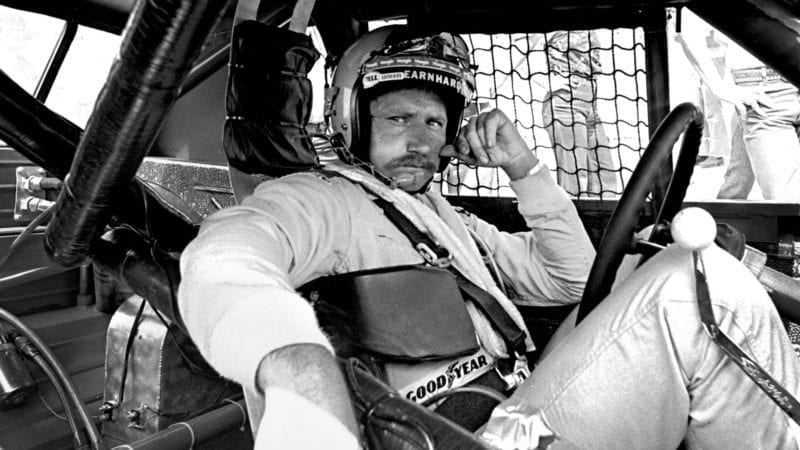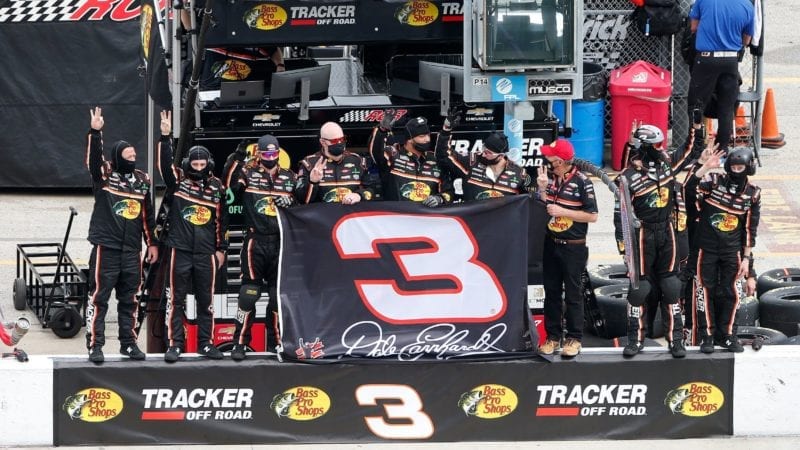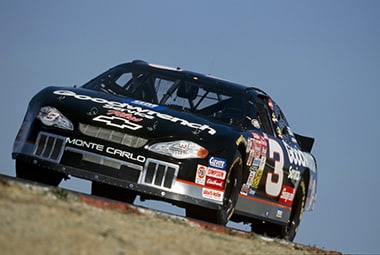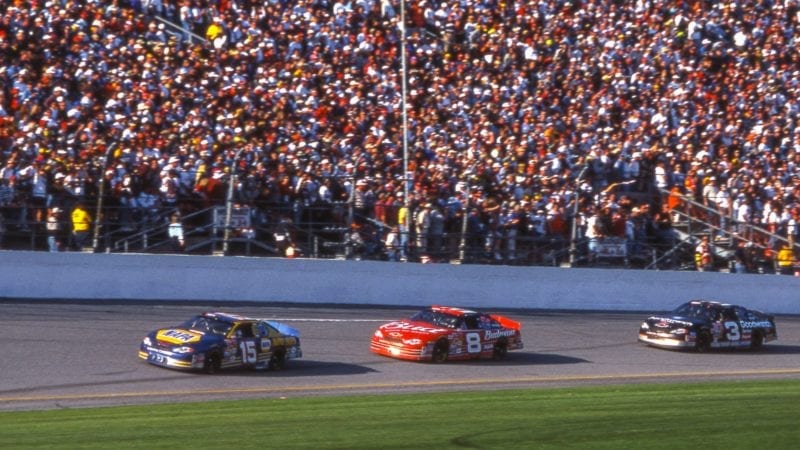During testing ahead of the 2001 race and on the race day itself, many drivers opted not to wear the HANS device, reporting that the equipment was uncomfortable or affected their ability to extricate themselves from the car in the event of an accident. So it was hardly surprising that when the series’ top star turned away from safety precautions, others would follow his lead.
On lap 173 of the ’01 Daytona race, Tony Stewart was sent airborne in a crash that took out 18 other drivers in an accident that looked far worse than the one Earnhardt would later suffer.
The no3 black Monte-Carlo was, as usual at a superspeedway, running up front for the majority of the race, but as the laps wound down victory was not the likeliest outcome for Earnhardt.
On the final lap as the Dale Earnhardt Incorporated no15 and no8 driven by team-mate Michael Waltrip and son Dale Earnhardt Jr respectively rounded Turn Four just in front of him, NASCAR was about to change forever and undergo one of its darkest moments.
The dichotomy of Waltrip earning his first Cup Series victory after a long road to get there while safety crews and ambulances attempted to extract Earnhardt from his Chevrolet a few hundred meters away was a gutwrenching and cruel ending to an otherwise miraculous day of racing.
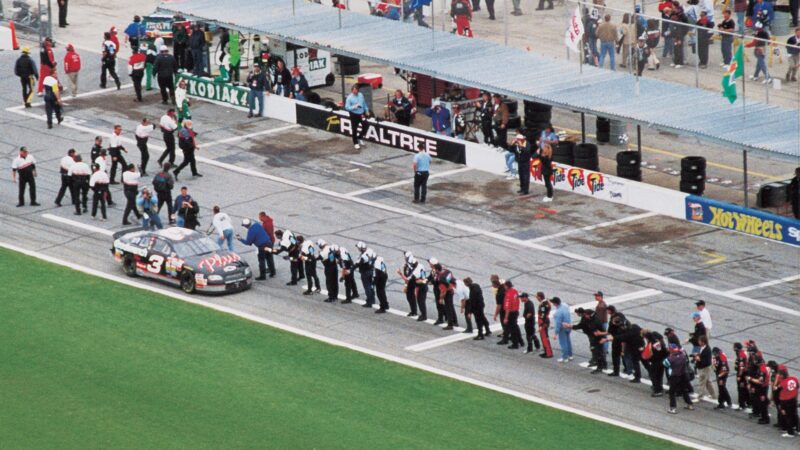
Mechanics line pit road to welcome Earnhardt back in victory lane after finally winning the Daytona 500 in 1998
ISC Archives/CQ-Roll Call Group via Getty Images
Crestfallen NASCAR president Mike Helton addressed media later that evening and confirmed the passing of Earnhardt Sr, the death of its seven-time champion led the organisation into a revolution in terms of safety.
Since the 2001 Daytona race, there has not been a single fatality in the top three series’ under the NASCAR umbrella.
The HANS device was a controversial topic among many Cup Series drivers, but that reluctance dissipated almost entirely following the crash.
The device was mandated by the series and made compulsory in October that year following the death of Blaise Alexander in an ARCA race at Charlotte Motor Speedway.
SAFER barriers were implemented at all NASCAR ovals after extensive research into reducing and more effectively dissipating energy during a crash and are present at other international venues today such as the Circuit de la Sarthe at the Porsche Curves and Baku’s street circuit at Turns 13 and 19.
In 2008, Jeff Gordon attributed the HANS device as the factor that saved his life in a crash at Las Vegas Motor Speedway. The no24 was turned around out of the second corner and straight into the inside wall at a direct angle, but the four-time champion emerged unscathed from the accident.
